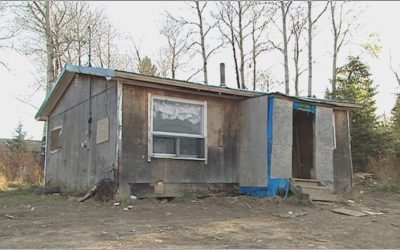The gargantuan U.S. Farm Bill has finally been passed. It’s a multi-billion dollar monster that will subsidize U.S. farm production at levels never seen before. The bill raises crop subsidy spending in agriculture by a whopping 70%.
Not only will the new bill affect traditional crops like corn, soybeans, cotton and the like, it also increases price supports for specialty crops. Many Manitoba farmers have successfully diversified into peas, beans, lentils and other specialty crops. With these commodities, it takes very little change in supply to induce massive fluctuations in price. A few more million acres alone of subsidized edible beans in the U.S. means that Manitoba producers, and our rural communities, will take a hit.
No only that, but the cap on what an individual farm can receive in the way of subsidies goes up to a “mere” $360,000! There was $94 million for apples, $500 million for sugar (ever wonder why we lost our sugar industry in Manitoba?), and $4 billion for peanuts (no pun intended).
On the plus side, the U.S. Farm Bill raises spending for conservation and environmental management on private farms. The Americans are miles ahead of Canada on this front. These programs benefit all Americans by providing incentives to farmers to deliver “environmental services” to the rest of society. They encourage good stewardship by rewarding sustainable practices. In Canada we have the “fish cops” in the Department of Fisheries and Oceans but little real conservation help for farmers.
President George Bush, a strong free-market advocate, must be having serious doubts about such a massive increase in farm subsidies. But the first rule in that business is that “All politics is local.” With control of the U.S. Senate up for grabs this year, he will sign the bill to help elect two or three more Republican senators from farm states.
If the subsidies paid to U.S. farmers helped at least in terms of saving rural communities, the logic might be clearer. But on this front they fail miserably. The evidence shows that direct price supports actually hasten rural decline. Subsidies become capitalized into land values and drive up farmland prices to stratospheric levels, far beyond the reach of young farmers. In the U.S. Great Plains, studies show that rural decline accelerated as subsidies increased.
The U.S. is a prosperous and dynamic country, and the world looks to them for leadership on security, economic development, and trade matters. The U.S. Farm Bill could derail much of the free trade success of the past 20 years. Canada has benefited greatly as trade has expanded and a “trade war” would be a serious blow to our standard of living. After all, it was an anti-trade bill in the U.S. that was a precipitating factor in the Great Depression.
While we cannot see any good news in the short term, it is vital that trade talks remain on track and that the world move to freer and more open trade. That would be good for all of us. But the U.S. is now heading in the direction of Europe, where farm subsidies remain an intractable problem. For now, batten down the hatches, folks.


